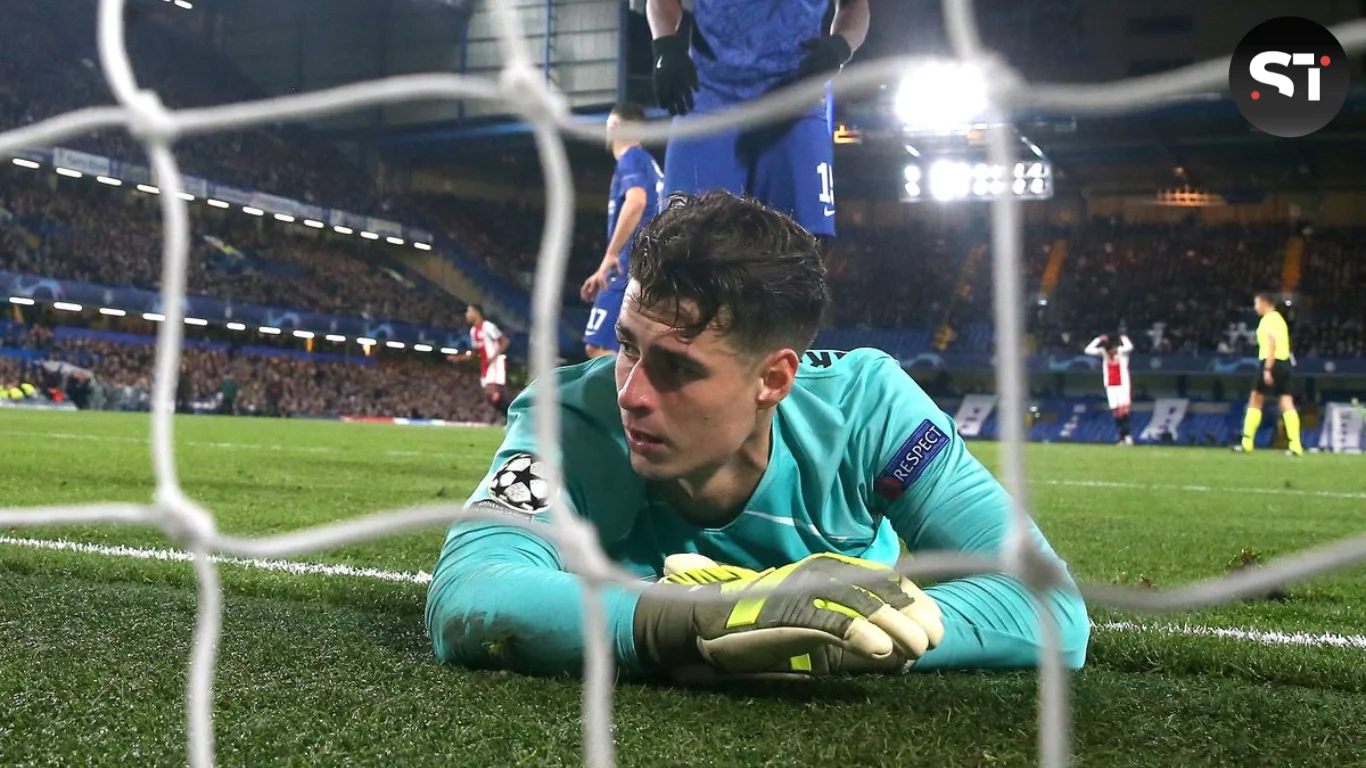Football is a sport where legends are made on the pitch, but the journey doesn’t always end there. Some of the game’s most iconic players have taken their talents off the field and into the managerial dugout, achieving remarkable success and becoming inspirational figures in a new capacity. This article delves into the fascinating stories of five football legends who became successful managers, showing that their greatness extends beyond their playing days.
1. Johan Cruyff: The Pioneer of Modern Football
Johan Cruyff is arguably one of the most influential figures in football history. As a player, he was the embodiment of the “Total Football” philosophy, a style of play that emphasized fluid positions and technical skill. Cruyff’s vision and intelligence on the field were unparalleled, earning him three Ballon d’Or awards and cementing his status as a football legend.
Transforming Management
After hanging up his boots, Cruyff’s transition to management was nothing short of revolutionary. He took over at Ajax, where he instilled the principles of Total Football that he had mastered as a player.

His methods were unorthodox but highly effective, leading Ajax to multiple domestic titles and a European Cup Winners’ Cup victory in 1987.
The Barcelona Legacy
Cruyff’s most significant managerial impact came at FC Barcelona. Appointed in 1988, he transformed a struggling team into a European powerhouse. Under his guidance, Barcelona won four consecutive La Liga titles and their first European Cup in 1992. Cruyff’s “Dream Team” was a tactical masterpiece, playing an attractive, attacking style that has influenced the club’s philosophy ever since.
Lasting Influence
Cruyff’s legacy as a manager extends beyond his trophy haul. He laid the foundations for the modern game, advocating for youth development and a commitment to beautiful football. His influence is evident in the success of managers like Pep Guardiola, who have carried forward his ideas.

Johan Cruyff is a prime example of how football legends became successful managers by reshaping the game itself.
2. Zinedine Zidane: The Maestro with a Golden Touch
Zinedine Zidane’s name is synonymous with elegance and brilliance. As a player, he dazzled fans with his skill and vision, leading France to World Cup glory in 1998 and earning the FIFA World Player of the Year award three times. His transition from player to manager was seamless, and his success was immediate and spectacular.

Instant Impact at Real Madrid
Zidane took over as Real Madrid manager in January 2016, with the team in a state of flux. His calm demeanor and deep understanding of the club’s culture quickly brought stability. Zidane’s Real Madrid was a formidable force, characterized by its attacking prowess and tactical flexibility.
Record-Breaking Achievements
Under Zidane, Real Madrid achieved unprecedented success, winning three consecutive UEFA Champions League titles from 2016 to 2018. This feat is unmatched in modern football, highlighting Zidane’s tactical acumen and ability to inspire his team. He also guided Real Madrid to two La Liga titles and numerous other domestic and international trophies.
A Managerial Masterclass
Zidane’s management style is a blend of tactical intelligence and man-management excellence. He understands the pressures of high-level football and knows how to get the best out of his players.

Zidane’s journey from a legendary player to a successful manager showcases how football legends became successful managers by leveraging their deep knowledge of the game and their leadership qualities.
3. Pep Guardiola: The Philosopher of Football
Pep Guardiola’s playing career was defined by his role as a midfield orchestrator at Barcelona. His vision and intelligence made him a pivotal figure in Johan Cruyff’s “Dream Team,” and he won numerous titles with the club, including the European Cup in 1992. Guardiola’s understanding of the game was evident even during his playing days.

Tactical Innovator
Guardiola’s transition to management was marked by a commitment to tactical innovation and a desire to play beautiful football. He took over as Barcelona’s manager in 2008, inheriting a talented but underachieving team. Guardiola’s philosophy of possession-based football, known as “tiki-taka,” revolutionized the game.
Unprecedented Success
During his time at Barcelona, Guardiola led the team to 14 major trophies, including two UEFA Champions League titles and three La Liga titles.

His team was known for its fluid, attacking style and defensive solidity, making them one of the greatest sides in football history.
Success Across Europe
Guardiola’s success continued at Bayern Munich and Manchester City, where he implemented his tactical philosophy with great success. At Bayern, he won three consecutive Bundesliga titles. At Manchester City, he has transformed the club into a dominant force in English football. Winning multiple Premier League titles and breaking numerous records.
A Philosophical Approach
Guardiola’s approach to management is deeply philosophical, focusing on the finer details of the game and constantly seeking improvement.

His success as a manager demonstrates how football legends became successful managers by applying their deep understanding of the game and their passion for innovation.
4. Carlo Ancelotti: The Tactician of Tranquillity
Carlo Ancelotti enjoyed a successful playing career, primarily with AC Milan, where he won two European Cups and several domestic titles. His versatility and tactical awareness made him a key player in Milan’s midfield during a period of great success.
Calm and Calculated Manager
Ancelotti’s managerial career has been characterized by his calm demeanor and tactical flexibility. He began his managerial journey with modest clubs, gradually building his reputation.

His big break came when he was appointed manager of AC Milan in 2001.
Milan’s European Glory
At Milan, Ancelotti’s tactical acumen shone through. He led the club to two UEFA Champions League titles in 2003 and 2007, cementing his reputation as a top-class manager. His ability to manage big personalities and adapt his tactics to different situations was key to his success.
Success in Multiple Leagues
Ancelotti’s managerial prowess has seen him achieve success across several top European leagues. He has won domestic titles in Italy, England, France, Germany, and Spain, a testament to his adaptability and tactical nous.

His calm and measured approach has made him a respected figure in the football world.
A Managerial Maestro
Ancelotti’s career illustrates how football legends became successful managers by combining their on-field intelligence with a calm and calculated approach to management.

His success in multiple leagues highlights his versatility and tactical brilliance.
5. Antonio Conte: The Passionate Perfectionist
Antonio Conte’s playing career was marked by his tenacity and leadership. As a midfielder for Juventus, he won multiple Serie A titles and a UEFA Champions League title. His work rate and tactical understanding made him a vital part of a dominant Juventus team in the 1990s.

A Fiery Managerial Style
Conte’s transition to management was characterized by his intense passion and meticulous attention to detail. He began his managerial career in Italy, working his way up from lower league clubs to the top tier of Italian football. His big break came when he was appointed manager of Juventus in 2011.
Reviving Juventus
At Juventus, Conte’s impact was immediate. He revitalized a struggling team, leading them to three consecutive Serie A titles.

His tactical system, based on a solid defense and rapid transitions, made Juventus a dominant force in Italian football once again.
Success Abroad
Conte’s managerial success continued abroad, particularly in England. He took over as Chelsea manager in 2016 and led the team to a Premier League title in his first season, implementing a dynamic 3-4-3 formation that took the league by storm. He also had a successful stint with Inter Milan, guiding them to a Serie A title in 2021.
A Perfectionist’s Approach
Antonio Conte’s relentless pursuit of perfection and his ability to instill a winning mentality in his teams drive his success as a manager.

His career highlights how football legends became successful managers by channeling their passion and tactical knowledge into building successful teams.
Suggested Read: Rivalry Between Man United and Liverpool: A Clash of Titans
A Legacy of Greatness
The journeys of Johan Cruyff, Zinedine Zidane, Pep Guardiola, Carlo Ancelotti, and Antonio Conte exemplify how football legends became successful managers by leveraging their deep understanding of the game, their leadership qualities, and their tactical acumen.
These legends have not only continued their legacy off the field but have also set new standards for managerial excellence. Their success stories serve as an inspiration for future generations of players and managers, proving that greatness on the pitch can indeed translate into greatness in the dugout.



